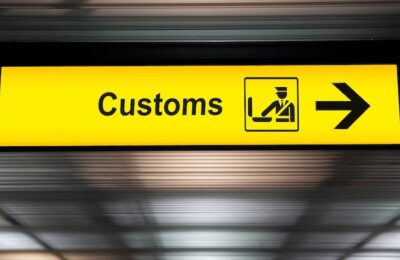In the 2024 Spring Budget, the then Chancellor Jeremy Hunt announced the abolition of the furnished holiday lets (FHLs) tax regime. The current government has stuck with this policy, which now forms part of the draft Finance Bill 2024-25. In this post, we look at the tax changes that will apply to FHLs and how they will affect you.
What are furnished holiday lets?
Furnished holiday lets are normally holiday homes. To qualify as a FHL, the property must be:
- Located in the UK or the EEA
- Furnished (there must be sufficient furniture for visitors to occupy the property normally)
- Commercially let (you must intend to make a profit)
It also needs to meet certain occupancy conditions. In particular, the property:
- Must be available as furnished holiday accommodation for at least 210 days in a tax year
- Needs to be let out commercially for at least 105 days in a year
Additionally, if any lettings exceed 31 continuous days, these lettings must not exceed 155 days in a year (when added together)
For full details on how FHLs are defined, visit this page.
Why are the tax rules for FHLs changing?
Currently, tax rules are more favourable for owners of FHLs that they are for normal buy-to-let landlords. This is largely because FHL owners can still claim mortgage interest relief. Given the current housing shortage, government wants there to be more properties available for full-time tenants. For this reason, it is making FHL ownership less attractive. Changing the furnished holiday let tax rules will also help government plug what it has dubbed a £21.9 billion ‘black hole’.
What are the new FHL tax rules?
The most significant change concerns mortgage interest relief. Currently, FHL owners can deduct mortgage interest from rental income for their income tax returns. From April 2025, relief will be restricted to a 20% basic rate tax credit. This will bring FHLs into line with normal buy-to-let properties.
The new legislation will also remove capital allowances rules. Instead, owners of FHLs will be able to deduct the cost of replacement domestic items against their rents. Government will also withdraw capital gains tax reliefs such as roll-over relief, gift relief, relief for loans to traders and business asset disposal relief.
Finally, any earnings from FHLs will cease to count as ‘relevant earnings’ when calculating maximum pension relief.
When will the new rules come into force?
The new rules will apply from 1st April 2025 for corporates and from 6th April 2025 for individuals and trusts. An anti-forestalling rule will apply from 6th March 2024 to prevent the use of unconditional contracts to obtain capital gains tax relief under the current FHL rules. Transitional arrangements also apply to business asset disposal relief. Where the FHL conditions are satisfied in relation to a business that ceased prior to 6th April 2025, relief may continue to apply to a disposal that occurs within the normal 3-year period following cessation.
Should I sell my properties?
If you have furnished holiday lets, the new tax rules may make it more tempting to sell up. However, we advise talking to one of our specialist accountants before making any decision. They can help you understand the pros and cons of keeping your properties as FHLs, letting them to full-time tenants, or selling them on. Get in touch today to make an appointment.
About Jon Pryse-Jones
Since joining THP in 1978, Jon Pryse-Jones has been hands on with every area of the business. Now specialising in strategy, business planning, and marketing, Jon remains at the forefront of the growth and development at THP.
An ideas man, Jon enjoys getting the most out of all situations, “I act as a catalyst for creative people and encourage them to think outside the box,” he says, “and I’m not afraid of being confrontational. It often leads to a better result for THP and its clients.”
Jon’s appreciation for THP extends to his fellow team members and the board. “They really know how to run a successful business,” he says. He’s keen on IT and systems development as critical to success, and he continues to guide THP to be at the cutting edge and effective.
Read More











